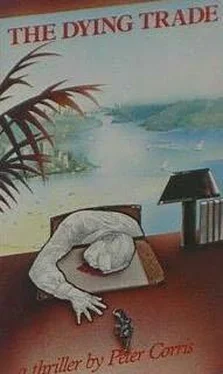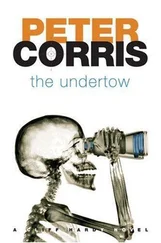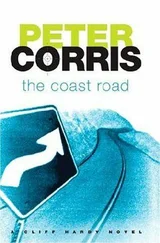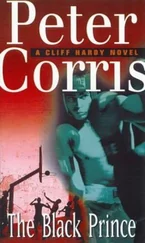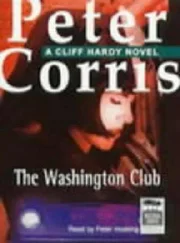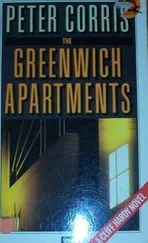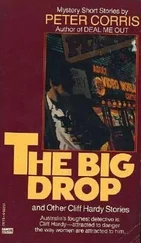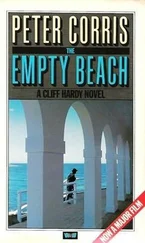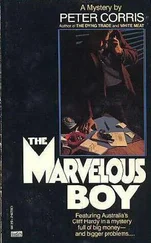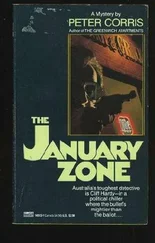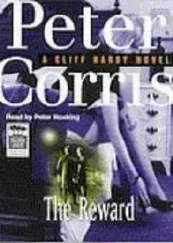Peter Corris - The Dying Trade
Здесь есть возможность читать онлайн «Peter Corris - The Dying Trade» весь текст электронной книги совершенно бесплатно (целиком полную версию без сокращений). В некоторых случаях можно слушать аудио, скачать через торрент в формате fb2 и присутствует краткое содержание. Жанр: Криминальный детектив, на английском языке. Описание произведения, (предисловие) а так же отзывы посетителей доступны на портале библиотеки ЛибКат.
- Название:The Dying Trade
- Автор:
- Жанр:
- Год:неизвестен
- ISBN:нет данных
- Рейтинг книги:4 / 5. Голосов: 1
-
Избранное:Добавить в избранное
- Отзывы:
-
Ваша оценка:
- 80
- 1
- 2
- 3
- 4
- 5
The Dying Trade: краткое содержание, описание и аннотация
Предлагаем к чтению аннотацию, описание, краткое содержание или предисловие (зависит от того, что написал сам автор книги «The Dying Trade»). Если вы не нашли необходимую информацию о книге — напишите в комментариях, мы постараемся отыскать её.
The Dying Trade — читать онлайн бесплатно полную книгу (весь текст) целиком
Ниже представлен текст книги, разбитый по страницам. Система сохранения места последней прочитанной страницы, позволяет с удобством читать онлайн бесплатно книгу «The Dying Trade», без необходимости каждый раз заново искать на чём Вы остановились. Поставьте закладку, и сможете в любой момент перейти на страницу, на которой закончили чтение.
Интервал:
Закладка:
I parked the car on the street outside the house. That still left room for two buses to drive side by side down the middle of the road and not scrape the Jaguars cruising along on either side of them. A high iron gate was hinged to brick pillars with plaster crests on them. Bands and blobs of colour were bright against the faded white background and there was a Latin inscription under the crest. I saluted it all with the manila folder full of blank paper I was carrying. A stroll from the house down to collect the milk and papers at the gate would set you up nicely for breakfast. The house had a long, low verandah in front of it with some sort of thatch on top. I pushed the bell beside the heavy oak door and it opened almost immediately. A small wisp of a woman held the door open. She couldn’t have been more than five feet tall and she seemed to be having some trouble keeping control of the door in the draught. Her hair was white and her face was wrinkled and beautiful like an old parchment. Her voice was the one I’d heard on the phone.
“Dr Hardy?”
“Yes.”
“Please come in, my husband is on the back terrace reading the newspaper. He’s looking forward to your visit. Would you like some tea?”
I thought it might be in character to accept even though I detest the stuff. She showed me down a long passage hung about with paintings which looked pretty good and some interesting Melanesian weapons. We went through a big sun porch lined with books and she opened a wire door out to a flagstoned terrace. A man was sitting on a garden chair positioned so he could get some sun through the tips of the trees. He had the Advertiser spread out on the table in front of him and he folded it up and got to his feet as I approached.
“Good morning, Sir Leonard, it’s good of you to see me.”
We shook hands.
“How do you do, Mr Hardy. Please sit down.”
He pointed to a chair on the other side of the table and I took it. He was a bit blimpish, clipped moustache and plenty of colour in his face. His voice was quiet and soothing to judge from the few words he’d spoken, not the snarl a lot of army officers acquire or affect. He had on a white shirt, open at the neck, grey trousers and an old corduroy jacket. He wore slippers but had none of the appurtenances of old age — hearing aid, glasses, walking stick; he looked about sixty although he was actually seventy-one.
“Well sir,” he said, “so you’re a military historian?”
“No, I’m a private investigator.”
“I see.”
“You don’t sound surprised.”
He smiled. “I’m not, except at your coming clean so quickly.”
“I had an idea I couldn’t fool you.”
He smiled again and nodded. “I’m flattered, you were quite right, you didn’t fool me. There is no Dr Hardy in History at the ANU. My son’s a Fellow there you see, and I have the current calendar in there among my books.”
He pointed to the sun room. As he did his wife came out carrying a tray with tea things on it. She put it down on the table, poured milk into three heavy enamel jugs and swilled the stuff about in the pot.
“I’m sorry Dr Hardy, I should have asked, do you take milk?”
I nodded and forced a smile while fighting down nausea.
“And sugar?”
I shook my head.
“You’ve lost your tongue,” she said, “I hope you two haven’t fallen out.”
The Brig reached across for his tea and cupped his hands around the mug. “No, no. Thank you my dear. No, we haven’t fallen out. Mr Hardy isn’t a military historian as I told you. It turns out he’s a private investigator. Now he’s going to drink his tea and tell me all about it.”
“How interesting. Drink your tea, Mr Hardy.” She pulled a pencil from her apron pocket and reached for the paper. “I think I’ll do the crossword while you sort it out. Don’t mind me.”
She’d known me for a fake before she’d opened the door and she’d played it as cool as Greta Garbo. I sipped the tea. It all tastes the same to me whether you make it in muslin tea bags or boil it up in a five gallon drum. I swallowed a minute amount and kept my hands around the mug as if I might possibly go back for more.
“I’m sorry about the deception,” I began. “It was very important that I see you and I wanted to make sure you’d give me a hearing. I thought the military history device would get me in.”
“I don’t mind about the deception young man, lived with it all my life, in the army and after. I’m mildly interested in military history, not a fanatic though. War’s uncivilised. Trouble is, a lot of people enjoy it. I like that remark by the man who would be a colleague of yours if you were an historian. ‘War is hell, and army life is purgatory to a civilised man’. Good, that. Where did you get the idea I’d take the military history bait?”
“From Mr Jenkins out at the orphanage.”
“Talked to Albie did you? Well you got the wrong end of the stick. I yarn to him about the war for his sake, not mine.”
“I can see it now. You would have seen me anyway?”
“Probably. See anyone who wants to see me, might be interesting. Which brings us to your business.”
He’d handled it pretty well as I guessed he’d handle most situations in his life. The woman worked away at the crossword, the cryptic, making good progress. They looked like a comfortable couple with affection flowing strongly between them. The incongruity between the house and the job he’d held for twenty-five years still puzzled me though.
“Yes, I hope you can help me,” I began. “I’m investigating a family matter in Sydney. It’s very confidential and complicated. There’s at least one murder involved, possibly more. A lot of money too and the happiness of several people who’ve done nothing wrong. I believe that a young man who grew up in the orphanage here is at the centre of it. I’ve come over to get more information about him, to help me get on with the case in the best way.”
“What sort of information?” There was still no military bark to the voice, but some of the gentleness had gone out of it. He was looking intently at me. I had his attention, his co-operation was still to be won.
“I’m not sure, almost anything, your impressions of his character for one thing. What I really want to understand is how he came to do the things he did.”
“You will have a choice about how you proceed in the matter? Your subject didn’t actually commit murder?”
“I believe I will have a choice. No, I’m pretty sure he didn’t kill anyone and isn’t directly responsible for a death.”
“Very well, so far so good. You’ll understand that I’m reluctant to talk loosely about the St Christopher boys. It’s hard for anyone who hasn’t spent a lot of time in such a place to understand what a handicap most orphans start out with. First, who are we talking about?”
“I’m sure you’re right, Sir Leonard,” I said. “The man I’m referring to is named Ross Haines. He’s twenty-three and he spent his first fifteen or so years in the orphanage. He found out who his mother was and he’s been operating at close quarters to her and her family for the past few years. His grandfather, his uncle and a friend of his uncle are all dead and Haines’ activities are some sort of key to their deaths, the causes. His grandfather’s widow and his own mother have been harassed and assaulted, attempts have been made on their lives. Haines’ motive appears to be revenge on the family that disowned him at birth, or before birth even. The family money may be a consideration, there’s a lot of it, but that’s a cloudy part of the affair. I’m retained by a Miss Sleeman, Haines’ grandfather’s widow, a second wife. I have the backing of Haines’ mother, but she doesn’t know about her son’s involvement. It’s very delicate as I said. A lot of people have been hurt and some more will be, that’s inevitable. My client is in hospital, she was assaulted and tortured. I can show you a letter which establishes my standing with my client. Apart from that and my professional documents, you’ll have to take me on faith.”
Читать дальшеИнтервал:
Закладка:
Похожие книги на «The Dying Trade»
Представляем Вашему вниманию похожие книги на «The Dying Trade» списком для выбора. Мы отобрали схожую по названию и смыслу литературу в надежде предоставить читателям больше вариантов отыскать новые, интересные, ещё непрочитанные произведения.
Обсуждение, отзывы о книге «The Dying Trade» и просто собственные мнения читателей. Оставьте ваши комментарии, напишите, что Вы думаете о произведении, его смысле или главных героях. Укажите что конкретно понравилось, а что нет, и почему Вы так считаете.
